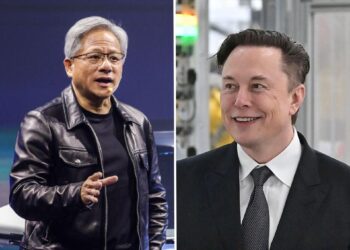According to statements made by Intel Corporation’s chief executive officer Mr. Patrick Gelsinger in Malaysia yesterday, the company’s announcement of more than $200 billion in chip manufacturing facilities in the US and Europe has been postponed.
Mr. Gelsinger is in Asia to meet with Intel’s suppliers, as his company and others in the semiconductor industry face historic supply chain constraints as a result of pandemic-related economic turmoil and historic demand.
According to previous statements by Mr. Gelsinger and other executives, Intel, which announced another multibillion-dollar plan to build chip manufacturing facilities in the United States, planned to reveal construction sites for additional plants in the United States and the European Union by the end of this year.
Mr. Gelsinger took over as CEO of Intel earlier this year, and the company announced a $20 million plan to establish semiconductor production facilities in Ocotillo, Arizona, for other companies. The proposal, dubbed contract manufacturing, is aimed at the Taiwan Semiconductor Manufacturing Company (TSMC), which is responsible for providing the latest processors and other chips to most consumer electronics and computing industries through orders received from others.
The Arizona investment, however, was just the beginning for Intel, which is working hard to develop and commercialize cutting-edge chip manufacturing methods. The company’s product roadmap, which was unveiled earlier this year, intends to shrink transistor sizes to as little as 18 Angstroms.
Intel’s intentions to disclose new chip manufacturing facilities in Europe and the United States, on the other hand, appear to have been postponed. Mr. Gelsinger indicated in an August interview with the Washington Post that his company would develop its next “big mega-fab facility” in the United States, which would be “the most sophisticated and capable manufacturing capacity, completely in the United States, with U.S. intellectual property.”
He also went on to state that:
This would be a very large site, so six to eight fab modules, and at each of those fab modules, between 10- and $15 billion. It’s a project over the next decade on the order of $100 billion of capital, 10,000 direct jobs. 100,000 jobs are created as a result of those 10,000, by our experience.
Representatives from Intel had also laid out plans for similar facilities in the European Union. These plans would entail the chipmaker bringing its 10-nanometer chip technologies to the other side of the Atlantic, with a total annual operating cost of $20 billion over ten years.
Mr. Gelsinger’s latest remarks at a press conference in Malaysia yesterday, however, appear to indicate that the plans have been postponed. According to Reuters, the Intel CEO stated at the event that his company now plans to announce new chip manufacturing facilities in Europe and the United States early next year. Intel announced a $7 billion Malaysian chip facility for late-stage chip manufacturing, which includes packaging and testing, but no reason for the delay has been given.
Mr. Gelsinger remains adamant about US government support for the semiconductor industry, notwithstanding the delay. Fearing that significant intellectual property may be jeopardized if American companies are left behind, the president has advocated for subsidies to be given to American firms instead of overseas firms such as TSMC and Samsung, both of which plan to establish new chip plants in the United States.
He feels that the playing field is skewed in favour of Asian corporations, which often receive significantly bigger subsidies from their governments than American companies like Intel and Texas Instruments.
Also Read: India might be the right market to shape the Metaverse










